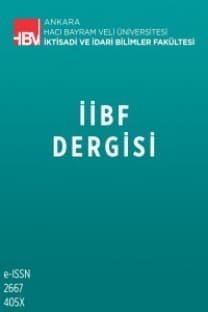OSMANLI’DAN CUMHURİYET’E MODERN EĞİTİMİN İNŞASI: DEVLETİN KURTARILMASINDAN DEVLETİN KURULMASINA
Tarih boyunca toplumlar, eğitimin fonksiyonel özelliğinden yararlanmışlardır. Geleneksel toplumlarda eğitim sürecinde, salt ihtiyaç duyulan gündelik yaşam pratiklerinin ve deneyimlerinin aktarılması yeterli olurken; Avrupa’da Aydınlanma ile birlikte başlayan ve temelleri yine bu dönemde atılan modern eğitim ile akıl ve nesnel bilgiyi önemseyen yeni bir birey yaratılmaya çalışılmıştır. Osmanlı’nın genellikle 18. yüzyılda başlatılan modernleşme çabalarının eğitim boyutunda ise yeni bir birey yaratılması amacından ziyade devletin kurtarılmasını sağlayacak niteliklerin bireylere kazandırılması amaçlanmıştır. İmparatorluğun toplumsal-siyasal düzeninin güvenliğini ve sürekliliğini sağlayan dini-geleneksel parametrelerin diriltilerek devleti eski gücüne kavuşturma endişesi taşıyan değişim hamleleri, yeni bireyi yaratmayı amaçlamadığı için Osmanlı son döneminde laik, karma ve aklı önceleyen bir eğitim sistemi de ortaya çıkamamıştır. 1923’te Cumhuriyet’in ilanının ardından kurulan yeni devlet ise kuruluşunu ve gelişimini tamamlayabilmek dolayısıyla yeni bireyi yaratabilmek için modern eğitim paradigmasına uygun düşecek ilkeleri belirlemeye çalışmıştır. Bu amaca uygun olarak da Atatürk Dönemi olarak adlandırılan 1923-1938 arasını kapsayan dönemde idari ve yasal düzenlemeler yapılarak oldukça radikal adımlar atılmıştır. Geçmişten kopuşu sağlamaya çalışan inkılap hareketleri ile eğitim sistemi modern öğeleri içerecek şekilde yeniden inşa edilmiştir. Bu çalışmada da Tanzimat Dönemi’nden itibaren Osmanlı Devleti’nde eğitim alanında yapılan yenilikler ve bu yeniliklerin odak noktası üzerinde durulmaktadır. Ardından 1923-1938 Dönemi’nde modern eğitimin inşası adına yapılan inkılaplar ve eğitime verilen misyon ele alınmaktadır.
Anahtar Kelimeler:
Eğitim, Modernleşme, Modern Eğitim, Paradigma Değişimi, Yeni Birey.
THE CONSTRUCTION OF MODERN EDUCATION FROM OTTOMAN TO REPUBLIC: FROM RECOVERY OF THE STATE TO THE ESTABLISHMENT OF THE STATE
Throughout the history societies have made use from functional feature of the education. In traditional societies, while it is confined to transfer practices of everyday life and experience, on the other hand in Europe in line with the Enlightenment, the reasoning and objective information exposed the importance of modern education and attempted to create a new individual during the process of education. Within the educational dimension of 18th century modernization efforts in Ottoman Empire, it was generally initiated the creation of a new individual to make the life of the Empire longer instead of intending an educated persons with distinctive peculiarities. The changing efforts to revitalize the religio-traditional parameters providing the sustainability and survival of the socio-political order for the sake of strengthening the Empire did not aim to create a new individual with the western mentality. Therefore this understanding did not lead to emerge an educational system which was giving the priority for the secularism, reason and the mixed character. Following the announcement of the establishment of the new state of the Republic in 1923 and thus complete the development of the individual in order to create a new paradigm of modern education which is appropriate to assess the fundamental principles. As a matter of fact, within the period of 1923-1938 called as Ataturk reign, radical steps had been taken in administrative and legislative fields in order to convey them to the next generations as the new behavioral models which were attained by the newly created educational system. In this period of time, the education had been perceived as a mean to reestablish the social order and to realize the ideological formulations by means of its widespread, obligatory and secular character. The ultimate target was to create a new notion of citizenship to shape and survive the dynamics of modern state. In this study, the reforms and innovations had been committed in Ottoman time since the Tanzimat period and the main focus of these reforms have been analyzed as well as the revolutions made for the sake of the construction of the modern education and its newly defined mission.
Keywords:
Education, Modernization, Modern Education, The Change of Paradigm, New Individual.,
- Yayın Aralığı: Yılda 3 Sayı
- Başlangıç: 1999
- Yayıncı: Ankara Hacı Bayram Veli Üniversitesi
Sayıdaki Diğer Makaleler
TEKNOLOJIK ENSTRUMANLAR BIREYSEL PERFORMANS DEGERLENDIRME SISTEMLERINE NASIL ADAPTE EDILEBILIR?
Mehmet Merve ÖZAYDIN, Ahmet TOZLU
Ahmet Eralp ÇELEN, Alptekin SÖKMEN, Yunus BIYIK
KRİZ VE YENİ TOPLUMSAL HAREKETLER: “İŞGAL ET” ÖRNEĞİ
İrep KIROĞLU BAYAT, Beril BAYKAL
Duygu ÜREK, İpek BİLGİN DEMİR, Özgür UĞURLUOĞLU
OSMANLI’DAN CUMHURİYET’E MODERN EĞİTİMİN İNŞASI: DEVLETİN KURTARILMASINDAN DEVLETİN KURULMASINA
